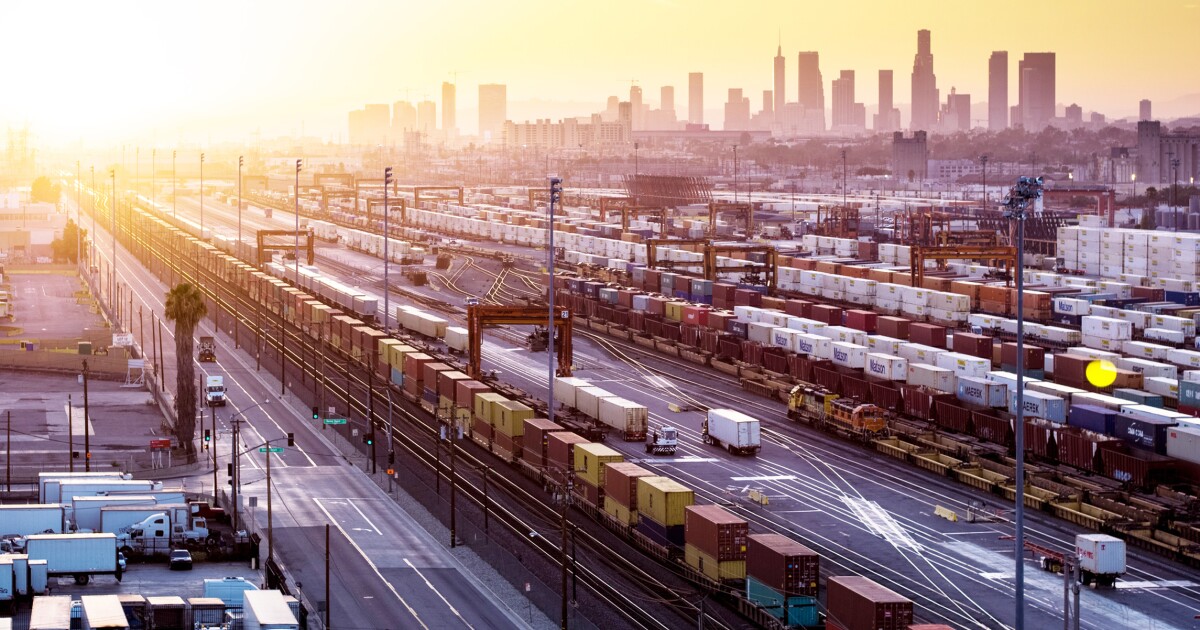

The latest row over America’s railroads shows how the politics of inflation is playing out as November’s midterm elections approach.
Almost all of America’s political discourse resembles a great game of hot potato. Politicians, activists, lobbyists, and industries all want to cast the blame away from themselves before the music stops.
“We’re one of the largest freight rail customers,” American Chemistry Council CEO Chris Jahn said on the Washington Examiner’s Plugged In podcast in late September. He complained of railroad “service disruptions” in this time of “supply chain crisis” that are worrying many chemical manufacturers that use rail to get bulk chemicals to industrial users.
According to Jahn, “Chemical manufacturing, being the central science, being the beginning of the manufacturing supply chain,” the recent larger disruption — a dozen rail unions threatening to strike before agreeing to settle at the last minute — had a “significant impact on inflation, and that ripples throughout the entire value chain. So it’s a big deal not just to us and our members but, frankly, to American consumers.”
As for what ought to be done about this, Jahn said, “We’ve got some suggestions.” These include a “reciprocal,” or forced, switching rule for the railroads and for Congress to pass the Freight Rail Shipping Fair Market Act.
The Freight Rail Shipping Fair Market Act has been opposed by the head of the chief rail regulator, the Surface Transportation Board. STB Chairman Martin Oberman testified to the House Subcommittee on Railroads, Pipelines, and Hazardous Materials in May and politely rejected calls for more power for his agency.
The bill would give the STB more authority to intervene in rate disputes between shippers and railroads and allow the board to prohibit rate hikes in the event of worker strikes. It would provide the agency with $256 million over five years and mandate several studies about how to intervene in freight commerce.
In other words, the bill would be a tool for “captive shippers” such as chemical manufacturers to get more of what they want out of the railroads. That may or may not be a good thing, but would any of this significantly help fight inflation?
“Inflation is multifaceted, just like the interrelated issue of supply chain congestion,” Ted Greener, spokesman for the Association of American Railroads, told the Washington Examiner. “To try and pin either on any single entity, such as railroads, is nonsensical and reeks of opportunism. Railroads have been clear that service must improve to a level that customers deserve and expect. But this will occur through continued actions by the railroads, such as hiring more employees, not unrelated policy changes that would do nothing to improve service.”
There are three factors driving price spikes that are roiling the economy. The most public one is the price of fuel, which is driving up the price of goods. The second-most visible cause is a global supply chain imbalance caused by COVID-19 disrupting the normal ebb and flow of global commerce that is slowly being worked out. The third, least seen but possibly the most significant, has nothing at all to do with rail or supply chains or political posturing.
“The reason for today’s inflation is that the money supply has grown by 40% since COVID-19 hit, while real output has gone up by only about 4%,” wrote Ryan Young, an economist and senior fellow at the Competitive Enterprise Institute. “That imbalance changed the ‘exchange rate’ between money and real goods — which is what inflation is.”
That significant expansion of the money supply to help support the economy during a worldwide pandemic, starting in 2020, is why the Federal Reserve keeps hiking interest rates today. These hikes are affecting the housing market and many other markets and may bring some prices down a bit.
That’s the plan, anyway. “The Fed’s job now is to get the money supply back in line with what the real economy is doing,” Young explained.






